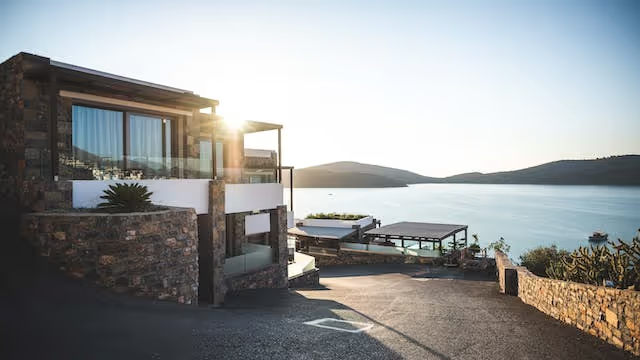
Blog
Retire on Your Terms with Smart Financial Planning
Retire on your own terms
Some ideas sound sensible until you live them. Like renovating a house without experience, trying a fad diet, or assembling flat pack furniture without looking at the instructions. Or, working until you're 70 to “top-up” your retirement.
Lately, there’s been growing noise about raising the retirement age, or more specifically, the age New Zealand superannuation (“NZ Super”, also known as “the pension”) is payable, to 70. The rationale? It’s mainly the cost, and who can continue to fund it. Consider:
- NZ Super is the single largest benefit funded by taxpayers, costing approximately $39 million per day. It already accounts for about 15 percent of the government's core operating expenditure, and around 53 percent of total benefits.
- Projections indicate the daily cost could triple by 2040, mainly due to an ageing population. Life expectancy at 65 has increased significantly (e.g., a person turning 65 in 2050 is expected to live another 24 years on average, compared to 14 years in 1950).
- The ratio of workers to super-annuitants is expected to drop significantly from 4:1 currently to 2:1 by 2040. Put another way, this is the ratio of those paying the taxes to those collecting the pension.
- NZ Super was introduced with an underlying assumption that recipients would be mortgage-free homeowners, though declining home ownership rates mean more older people are carrying mortgages or renting, adding to financial pressure.
Around 40 percent of people aged 65 and over have virtually no other income apart from NZ Super, and another 20 percent have only a little more. Recent research indicates growing cost-of-living pressures are forcing some over-65s to make extreme cuts to spending, with 37 percent reporting their financial situations worsened over the last two years. This is particularly challenging for those retirees who are renting or who are still repaying a mortgage.
The number of Kiwis aged 65 and over has quadrupled over the past 25 years. It is likely this number will continue to rise. But is working into your seventies truly the golden ticket to a secure retirement? Or is it a costly gamble with your health, freedom, and sanity?
Let’s take a closer look.
The Science Is Not on Team 70
Living longer doesn’t automatically mean you can or should work longer. While average life expectancy in New Zealand is around 82.2 years, the years we live in good health (called “health-adjusted life expectancy”) is closer to 67.4 years for men and 69.8 years for women.
In other words, the average New Zealand man will spend roughly 15 years in declining health. Not exactly where you want to be stuck in Monday meetings.
According to a large-scale longitudinal study from Oregon State University, working past 65 may increase longevity for healthy individuals. However, the same study found that working longer offered no benefit (and even some harm) to people already in poor health.
As Harvard Health Publishing puts it: “Working longer can provide purpose, but only if your body and mind are on board.”
Many People Won’t Make It That Far
Here’s the uncomfortable truth: not everyone gets the luxury of choosing when to retire.
A 2022 report from the New Zealand Productivity Commission revealed one in three Kiwis over age 65 were out of work not by choice, but were principally forced to retire because of poor health, caring responsibilities, or redundancy. This highlights a significant portion of older individuals are leaving the workforce not by preference, but due to circumstances beyond their control.
And even for those working later in life, underemployment is a major issue. Many older workers face ageism, lack of flexibility, challenges adapting to emerging technologies, or difficulty upskilling into new roles. The idea of “working longer” is often more fantasy than feasible policy.
Learn more:
Financial Necessity Versus Financial Strategy
Let’s not kid ourselves: most people considering working until 70 aren’t doing it for the thrill of PowerPoint. It’s about money.
But the idea that working longer automatically improves retirement outcomes is a bit simplistic. The real key isn’t just more years in the workforce; it’s how well you use the ones you have.
Consider this:
- A 55-year-old saving $500 per month with a six percent return will have over $145,000 by age 70.
- But a 35-year-old saving half that much, just $250 per month, at the same return gets to $251,000 by age 65.
In investing, time beats timing, and starting earlier beats finishing later.
Learn more:
Don’t Pin Your Hopes on Selling the Business
The New Zealand economy is dominated by smaller entities, approximately 97 percent of all businesses in New Zealand are classified as small businesses, that is, typically defined as having fewer than 20 employees. This impressive proportion currently stands at around 594,000 companies. These businesses are responsible for about 28 percent of all employees and provide somewhere between 30 to 40 percent of the country’s economic output, depending on which year and source you believe.
It’s little surprise that many small business owners plan to sell their business as a cornerstone of their “retirement plan.” Which sounds great, until it doesn’t.
In reality:
- Only 20 to 30 percent of businesses that go to market sell. These businesses will either close down, be ‘sold for parts’, or be sold at a later stage for much less than their potential value.
- Most sell for far less than owners expect, often due to owner-dependence or lack of systems that an acquirer could replicate.
- Costs for lawyers, a broker, accountants, valuers, preparation costs, and pre-sale clean-up costs can eat a significant chunk of the proceeds. Many businesses are also sold with earn-out or retention arrangements, which can further erode the proceeds or detract from making a clean break to retire.
Plus, by the time you’re 70, the buyer pool may be as limited as your flexibility.
While owning a well-run small business is a fantastic wealth-building tool, it’s risky to make it your only one, or to leave your exit too late.
The Psychology of Retirement Is Real
We often associate retirement with the end of productivity. But in truth, it’s a shift from doing what you must do, to doing what you choose to do.
A 2020 study from Cambridge University found that forced or delayed retirement was strongly linked to increased stress, anxiety, and even cardiovascular events.
On the other hand, retirees with purpose-driven activities (think volunteering, mentoring, or starting side businesses) enjoy better mental health and longer life expectancy.
As Morgan Housel, author of The Psychology of Money, writes: “Controlling your time is the highest dividend money pays.”
Retirement isn’t about doing nothing. It’s about doing what matters most while you still can.
Can the Economy Absorb a 70-Year-Old Workforce?
Here’s another uncomfortable question: where are all these 70-year-olds going to work?
Not every profession is age friendly. Nurses, construction workers, carers, chefs, tradies, and most shift workers often can’t physically continue into their seventies, even if they want to.
The idea that hundreds of thousands of older workers can simply stay on is, frankly, idealistic.
The value and experience older workers bring to many parts of the workforce is unrivalled, though in the face of rapid technological change, and consumer preferences which are changing nearly as fast, is all that experience still valid?
The labour market is already facing technological disruption and evolving skill demands.
We should collectively be investing in financial independence earlier, rather than asking people to prop up a creaking system with creaking knees.
So, What Should You Do Instead?
There’s a better way than relying on a mythical retirement age. Here’s a few suggestions.
A. Plan Early, Even If It’s Not Perfect
Retirement planning isn’t just for high-net-worth types. Start where you are.
Beyond customary contributions to a KiwiSaver Scheme, individuals often employ strategies such as starting and funding non-KiwiSaver unlocked investments, managing their investment options to align with their risk tolerance and time horizon, and considering transition-to-retirement (TTR) strategies to ease into retirement while still supplementing income. Effective planning also involves estimating future expenses and regularly reviewing financial goals to account for changes in circumstances, inflation, and market conditions.
The earlier you begin, the more options you’ll have later on.
B. Diversify Income Sources
Relying solely on NZ Superannuation or one business sale is risky. Build multiple income streams: investment portfolios, property, side hustles, or even part-time consulting.
C. Keep Your Lifestyle in Check
Avoid lifestyle inflation. That new boat might bring joy now, but 20 years of financial pressure won’t. A simple, sustainable lifestyle is your best ally.
Learn more: Lifestyle creep
D. Stay Healthy, On Purpose
Health is everything.
Even if you’re fantastically well-off, all that financial freedom is a lot less fun if you're too busy arguing with your own knees or trying to remember where you left your reading glasses (for the third time today). The truth is health isn't just a bonus round in retirement; it's the main event. Because what's the point of having a perfectly plump nest egg if you're too creaky to crack it open and enjoy that well-deserved trip to Bali, or wrestle with the grandkids? Investing in your well-being now, maybe by nutrition, exercise, stress management, sleeping right, or remembering to get that funny mole checked.
Investing in your health might just be the most financially savvy decision you'll ever make.
The Bottom Line: Retire on Your Own Terms
For some, the idea of retiring at 70 is a nightmare-in-waiting. For others, it’s an opportunity to stay active and engaged. But it should never be a requirement just to make ends meet.
The key is to focus on what you can control: how you spend, save, invest, preserve your health, and align your life with your values.
Whether you plan to work until 50, 70, or somewhere in between, the real goal is freedom.
And if you truly want to work at 70, just make sure it’s by choice, not by default.
To discuss your retirement plans with a trained professional, book your complimentary financial health check with our team.
You may also like:

What to Consider When Buying an Investment Property

The Liquidity Line: Distinguishing Net Worth from True Financial Wealth


